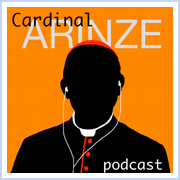Gospel for Oct 1, Memorial: St. Therese of the Child Jesus, Virgin & Doctor of the Church
From: Luke 10:17-24
The Seventy Return From Their Mission
[17] The seventy returned with joy, saying, "Lord, even the demons are subject to us in Your name!" [18] And He (Jesus) said to them, "I saw Satan fall like lightning from Heaven. [19] Behold, I have given you authority to tread upon serpents and scorpions, and over all the power of the enemy; and nothing shall hurt you. [20] Nevertheless do not rejoice in this, that the spirits are subject to you; but rejoice that your names are written in Heaven."
Jesus Gives Thanks
[21] In that same hour He rejoiced in the Holy Spirit and said, "I thank Thee, Father, Lord of Heaven and earth, that thou hast hidden these things from the wise and understanding and revealed them to babes; yea, Father, for such was Thy gracious will. [22] All things have been delivered to Me by My Father; and no one knows who the Son is except the Father, or who the Father is except the Son and any one to whom the Son chooses to reveal Him."
[23] Then turning to the disciples He said privately, "Blessed are the eyes which see what you see! [24] For I tell you that many prophets and kings desired to see what you see, and did not see it, and to hear what you hear, and did not hear it."
*************************
Commentary:
20. Our Lord corrects His disciples, making them see that the right reason for rejoicing lies in hope of reaching Heaven, not in the power to do miracles which He gave them for their mission. As He said on another occasion, "On that day many will say to Me, `Lord, Lord, did we not prophesy in Your name, and cast our demons in Your name, and do many mighty works in Your name?' And then will I declare to them, `I never knew you; depart from Me, you evildoers'" (Matthew 7:22-23). In other words, in the eyes of God doing His holy will at all times is more important than working miracles.
21. This passage of the Gospel is usually called our Lord's "hymn of joy" and is also found in St. Matthew (11:25-27). It is one of those moments when Jesus rejoices to see humble people understanding and accepting the word of God.
Our Lord also reveals one of the effects of humility--spiritual childhood. For example, in another passage He says: "Truly, I say to you, unless you turn and become like children, you will never enter the Kingdom of Heaven" (Matthew 18:3). But spiritual childhood does not involve weakness, softness or ignorance: "I have often meditated on this life of spiritual childhood, which is not incompatible with fortitude, because it demands a strong will, proven maturity, an open and firm character [...]. To become children we must renounce our pride and self-sufficiency, recognizing that we can do nothing by ourselves. We must realize that we need grace, and the help of God our Father to find our way and keep it. To be little, you have to abandon yourself as children do, believe as children, beg as children beg" ([St] J. Escriva, "Christ Is Passing By", 10 and 143).
22. "This statement is a wonderful help to our faith," St. Ambrose comments, "because when you read `all' you realize that Christ is all-powerful, that He is not inferior to the Father, or less perfect than He; when you read `have been delivered to me', you confess that Christ is the Son, to whom everything belongs by right of being one in substance [with the Father] and not by grace of gift" ("Expositio Evangelii Sec. Lucam, in loc.").
Here we see Christ as almighty Lord and God, consubstantial with the Father, and the only one capable of revealing who the Father is. At the same time, we can recognize the divine nature of Jesus only if the Father gives us the grace of faith--as He did to St. Peter (cf. Matthew 16:17).
23-24. Obviously, seeing Jesus with one's own eyes was a wonderful thing for people who believed in him. However, our Lord will say to Thomas, "Blessed are those who have not seen and yet believe" (John 20:29). St. Peter, for his part, tells us: "Without having seen Him you love Him; though you do not see Him you believe in Him and rejoice with unutterable and exalted joy. As the outcome of your faith you obtain the salvation of your souls" (1 Peter 1:8-9).
***************************
Source: "The Navarre Bible: Text and Commentaries". Biblical text taken from the Revised Standard Version and New Vulgate. Commentaries made by members of the Faculty of Theology of the University of Navarre, Spain. Published by Four Courts Press, Kill Lane, Blackrock, Co. Dublin, Ireland.
Reprinted with permission from Four Courts Press and Scepter Publishers, the U.S. publisher.









